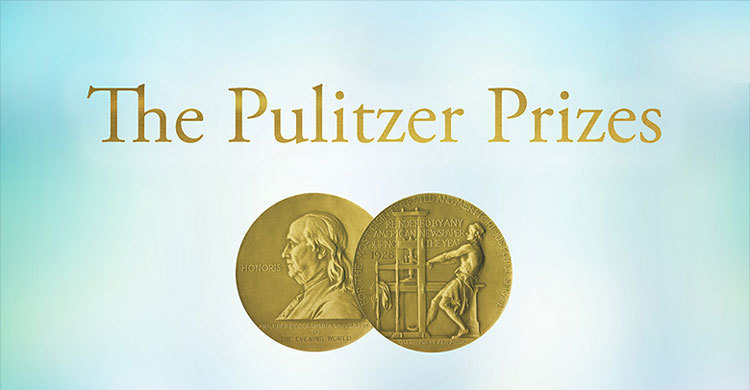NY Times, Washington Post, New Yorker win Pulitzer Prizes

Exposes on mogul Harvey Weinstein that helped spark the #MeToo movement and coverage of Russian election interference earned top 2018 Pulitzer prizes.
An investigation of Alabama Senate candidate Roy Moore’s alleged pattern of sexual misconduct with underage women also won America’s most prestigious journalism award.
The New York Times and the New Yorker shared the public service award for parallel investigations that revealed decades of sexual harassment and assault allegations against Mr Weinstein, a towering Hollywood figure who has been forced from the board of the company he co-founded and faces multiple sexual assault enquiries. (Mr Weinstein has denied sexual misconduct occurred).
The national reporting award went to the Washington Post and the New York Times for their dogged reporting on Russian meddling in the 2016 election and special counsel Robert Mueller’s investigation of links to the Trump campaign. The two papers have been trading scoops for months, illuminating the scope and targets of an investigation that has dominated the Trump presidency and incurred the president's wrath.
A Washington Post investigation that altered the course of a critical Senate race, leading to the all-but-inconceivable outcome of the Republican Mr Moore losing to a Democrat in one of America’s most conservative states, garnered the investigative Pulitzer. (Mr Moore has denied sexual misconduct occurred).
In announcing the winners, prize administrator Dana Canedy noted that the winning stories illustrated the necessity of a free press even as Donald Trump regularly inveighs against “fake news”.
“Their work is real news of the highest order”, Ms Canedy said.
Journalism has been under “seemingly relentless assault of late but remains essential to a healthy democracy”, Ms Canedy said.
Hostility towards the press is an elemental feature of Mr Trump's platform. He regularly assails specific news outlets in morning barrages of tweets, dismissing negative coverage as partisan and fraudulent.
The president has most often lashed out at coverage of Mr Mueller’s investigation, which has so far led to indictments against multiple former aides, deriding the probe itself as a “witch hunt”. The Republican Party has followed his lead, announcing an inaugural round of “fake news” awards and singling out coverage of the investigation, saying “Russian collusion is perhaps the greatest hoax perpetrated on the American people”.
In the local reporting Pulitzer category, the Press Democrat of Santa Rosa, California was honoured for its coverage of powerful wildfires that whipped through the state's wine region and incinerated city blocks.
The Pulitzer for international coverage went to Reuters for its reporting on Philippines autocrat Rodrigo Duterte's brutal crackdown on drug dealing. USA Today and the Arizona Republic shared the explanatory award for their multimedia collaboration on the challenges to building a wall on the US-Mexico border.
In non-journalism categories, rapper Kendrick Lamar won for his widely acclaimed album DAMN., the first time the music award has gone to hip-hop.
Here's the full list:
Public Service: The New York Times, for reporting led by Jodi Kantor and Megan Twohey, and the New Yorker, for reporting by Ronan Farrow, for their exposes on “that exposed powerful and wealthy sexual predators”, including Mr Weinstein
Breaking News Reporting: Staff of the Press-Democrat of Santa Rosa, California for “lucid and tenacious coverage of historic wildfires that ravaged the city of Santa Rosa and Sonoma County”,
Investigative Reporting: Staff of the Washington Post for “purposeful and relentless reporting that changed the course of a Senate race in Alabama”.
Explanatory Reporting: Staffs of the Arizona Republic and USA Today Network for examining “the difficulties and unintended consequences of fulfilling President Trump's pledge to construct a wall along the U.S. border with Mexico”.
Local Reporting: The Cincinnati Enquirer staff for “documenting seven days of greater Cincinnati's heroin epidemic”.
National Reporting: Staffs of the New York Times and the Washington Post for coverage “that dramatically furthered the nation’s understanding of Russian interference in the 2016 presidential election and its connections to the Trump campaign, the President-elect’s transition team and his eventual administration”.
International Reporting Clare Baldwin, Andrew Marshall and Manuel Mogato of Reuters for stories “that exposed the brutal killing campaign behind Philippines President Rodrigo Duterte’s war on drugs”.
Feature Writing: Rachel Kaadzi Ghansah, freelance reporter, GQ for her portrait of Dylann Roof, who murdered parishioners at an African-American church.
Commentary: John Archibald of Alabama Media Group in Birmingham, Alabama for “courageous commentary that is rooted in Alabama but has a national resonance in scrutinizing corrupt politicians, championing the rights of women and calling out hypocrisy”.
Criticism: Jerry Saltz of New York magazine for his coverage of visual art.
Editorial Writing: Andie Dominick of the Des Moines Register for illustrating “the damaging consequences for poor Iowa residents of privatising the state’s administration of Medicaid”.
Editorial Cartooning: Jake Halpern, freelance writer, and Michael Sloan, freelance cartoonist, the New York Times for their graphic series on a family of refugees.
Breaking News Photography: Ryan Kelly of the Daily Progress in Charlottesville, Virginia for his image of a car crashing into a crowd of counter-protestors, killing one.
Feature Photography: Photography staff of Reuters for showing “the violence Rohingya refugees faced in fleeing Myanmar”.
Fiction: Less, by Andrew Sean Greer
Drama: Cost of Living, by Martyna Majok
History: The Gulf: The Making of an American Sea, by Jack Davis
Biography: Prairie Fires: The American Dreams of Laura Ingalls Wilder, by Caroline Fraser
Poetry: Half-light: Collected Poems 1965-2016, by Frank Bidart
General Nonfiction: Locking Up Our Own: Crime and Punishment in Black America, by James Forman
Music: DAMN., by Kendrick Lamar
Source: The Independent



